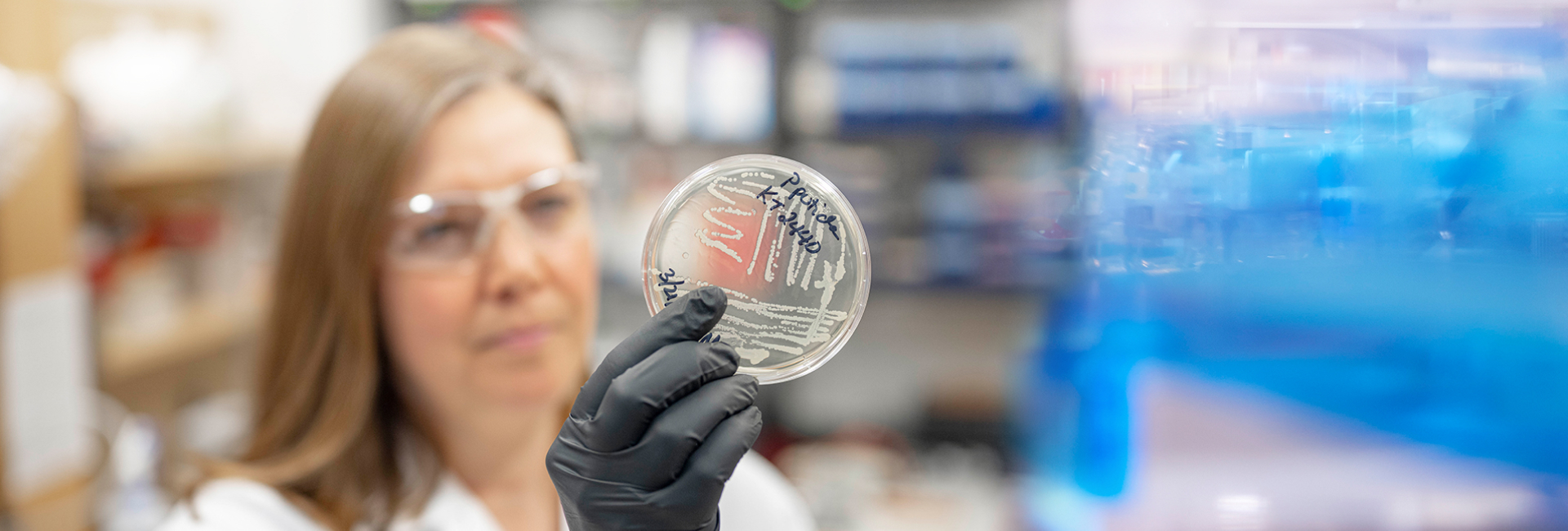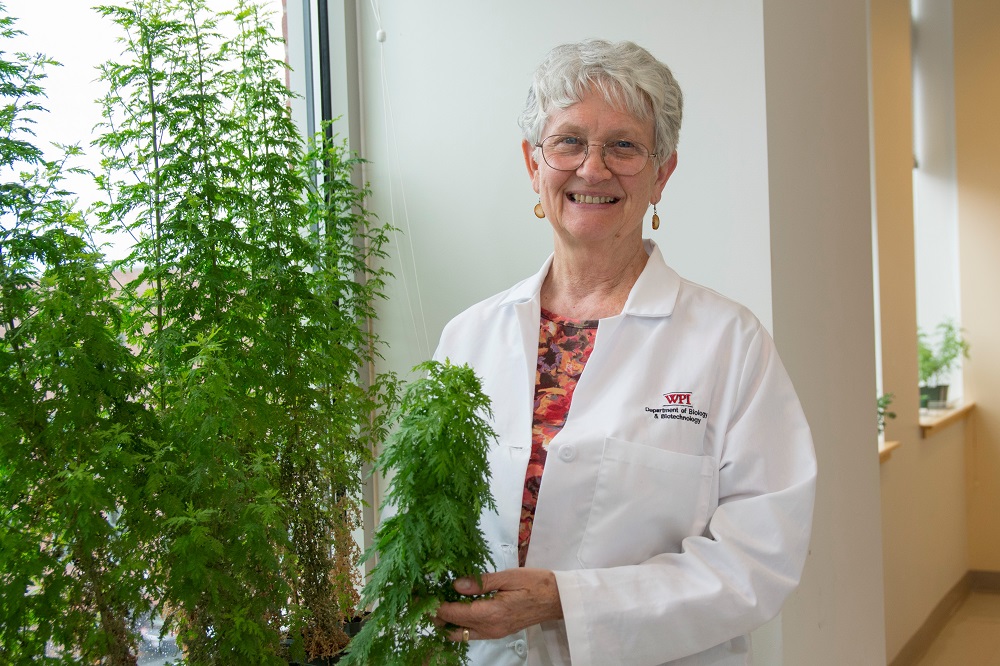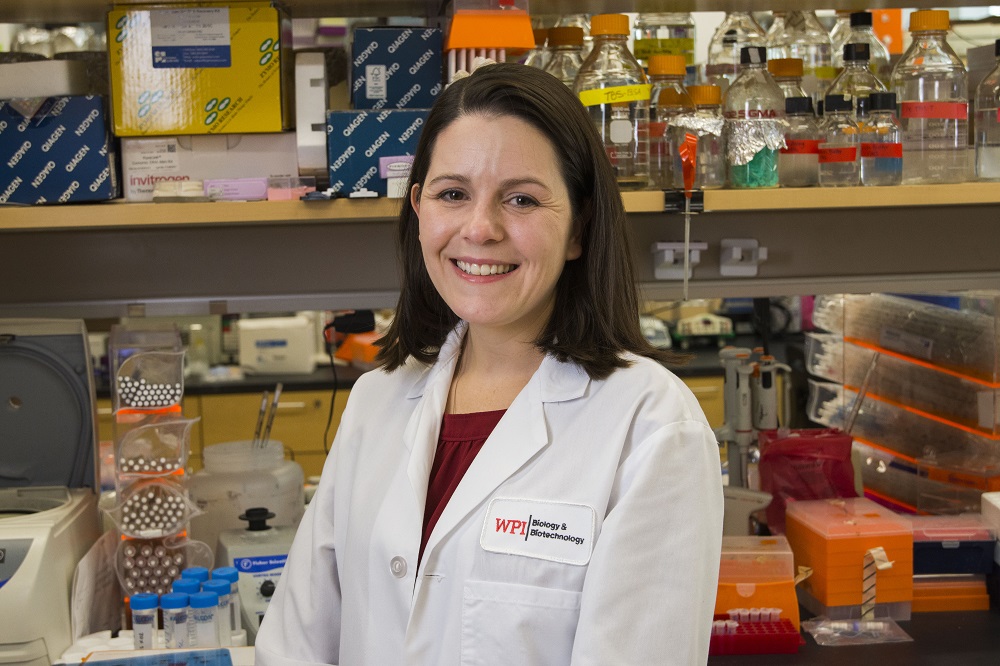Pamela J. Weathers, professor of biology and biotechnology at Worcester Polytechnic Institute (WPI), has been named a fellow of the American Association for the Advancement of Science (AAAS), the world’s largest general scientific society.
Election as a fellow is an honor bestowed upon AAAS members by their peers in recognition of their scientifically or socially distinguished efforts to advance science or its applications. Weathers, along with this year’s 400 other new fellows, will be honored on Feb. 14, 2015, during the AAAS Annual Meeting in San Jose, Calif. She is being honored for distinguished contributions to the field of plant biology, particularly for her research on the plant Artemisia annua, which produces an anti-malaria agent known as artemisinin.
Weathers, who joined the WPI faculty in 1979, has been engaged for more than a decade in research aimed at developing more effective and cost-effective ways to produce artemisinin and to deliver it to patients to treat malaria, one of the most prevalent and deadly infectious diseases of the developing world. Artemisinin, usually administered in combination with other antimalarial drugs, is currently the primary treatment for the disease. These artemisinin combination therapies are designed to reduce the likelihood that the malaria parasite will become resistant to the treatment.
Most recently, Weathers has been experimenting with a therapeutic regime that involves administering the Artemisia annua plant, itself, in the form of ground leaves pressed into tablets or placed in capsules. Animal studies have shown that this whole plant therapy delivers 40 times more artemisinin to the blood and is five times more effective in clearing the disease-causing parasite in mice than artemisinin combination therapies. Weathers believes the effectiveness of the whole plant, versus the purified drug, may be due, in part, to the presence in Artemisia annua leaves of flavonoids, terpenes, and other compounds known to have antimalarial abilities. This natural combination therapy may also help ward off resistance.
Currently, with a major award from the National Institutes of Health, she is seeking to learn more about how these other compounds might serve as adjuncts to artemisinin. Using cultured human intestinal wall cells, she is studying which compounds are able to move through the intestinal wall and whether they also help artemisinin enter the bloodstream.
Weathers notes that in addition to being a more effective treatment for malaria, the whole plant therapy promises to be less expensive that current malaria treatments and could be produced by small businesses located in developing nations where the treatment is needed, which would help eliminate the challenges caused by frequent shortages of artemisinin combination therapies.
"We may actually be able to lower health care costs by use of our proposed novel production and delivery method," she said. "This is exciting because it could eventually impact millions of people worldwide."
In addition to her research on Artemisia annua, Weathers has conducted work on plant root physiology and genetically modified roots, the biochemistry of plant secondary metabolites, in vitro cell culture using a novel mist bioreactor, the molecular mechanisms controlling genetic expression of biosynthetic pathways, and methods for optimizing the growth of algae that produce biofuels. This work has resulted in several patents and more than 100 peer-reviewed publications.
Weathers, who earned a BS biology at Marquette University and a PhD in botany and plant pathology at Michigan State University, is also a fellow of the Society for In Vitro Biology. Other honors bestowed upon her include the Moet-Hennesey Award (1987) for her work her development of the mist bioreactor; the WCA Katherine F. Erskine Award for Outstanding Woman in Science and Medicine in Central Massachusetts (1995); and Distinguished Service Awards from the Society for In Vitro Biology (2004, 2012, 2014). In 2000, she received WPI’s Trustees’ Award for Outstanding Research and Creative Scholarship.




